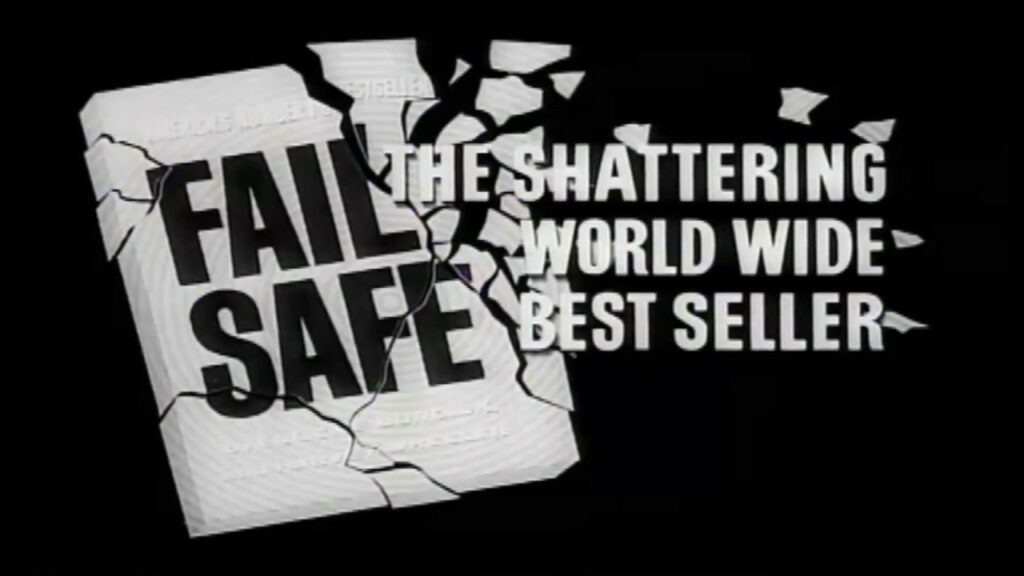
Full film Fail Safe (1964) is a cultural mirror, from another age, that helps us think about the next ten years of mess. With technical systems out of human control. The film’s malfunctioning machines map directly onto today’s algorithmic governance (#dotcons, #AI, automated warfare). Once the chain starts, humans can’t pull back.
Leadership under impossible pressure. Henry Fonda’s president embodies the loneliness of decision-making when systems collapse. Compare that to our current leaders, who are weaker, more performative, and less willing to carry the weight of consequence.
The Professor’s logic vs. human life: Matthau’s cold “game theory” feels like the #neoliberal technocrat mindset – numbers over people, outcomes over ethics.
The unthinkable concessions of the ending forces us to imagine the price of avoiding total annihilation – not a win/lose game, but a choice between different forms of catastrophe. That’s climate politics, resource wars, pandemics, and #dotcons algorithm risk we face.
What lessons can we learn for the next decade? System fragility is the real enemy – climate systems, financial systems, digital platforms: one glitch, and collapse ripples out. We don’t have the principle modernism, Fonda’s gravitas – our current elitists class are hollowed out by #PR driven populism; when the crisis comes, trust won’t be there. The “Professor” mindset dominates – policy is still guided by “hard” data, models, metrics, and “rational actors,” even though reality has long escaped those dogmatic frames. Watching Fail Safe today is like watching the #deathcult’s worldview in black and white: centralized control, elitist decision-making, people as statistics.
What we need is open, collective mediation – instead of waiting for one lonely leader in a bunker, we need horizontal systems (#OMN, #openweb) that can act before catastrophe hardens. The #OMN and the #openweb reboot are the anti–Fail Safe projects: decentralize agency, mediate conflict before escalation, building trust outside fragile centralized systems. It’s a powerful film, because it frames the stakes not just as “politics” but as civilizational survival.
It’s a film of our times, what can we learn for the #openweb? In 1964, Sidney Lumet’s Fail Safe held its audience in terrified silence. A simple technical malfunction – a misread code – sent American bombers hurtling toward Moscow. No one could call them back. The world’s survival depended on one president’s unthinkable decision. It was fiction, but it spoke to a truth of the nuclear age: centralized systems, once in motion, cannot be controlled.
Sixty years later, we are in our own Fail Safe moment – but this time the system is digital. The malfunction, is #neoliberalism embedded in our algorithmic #dotcons pipelines. As we push more #AI moderation system, hallucinates flags, the error replicates at machine speed across platforms. What began as a technical hiccup hardens into policy. Governments, seeing chaos, step in “to restore order.” dictators empower security agencies to control networks, to stabilise their hold on power. Like the bomber wings in Fail Safe, the system escalates itself. Once the order is given, there is no recall code.
The #OMN alternative to this is #KISS we need to build is affinity groups on the #openweb – messy, small, federated – to keep our communities talking. Instead of one brittle command chain, thousands of small nodes exchange trust. Instead of a sinal voice, a new signal-to-noise ratio emerges. This slows the shift right. People can begin to rebuild, bottom-up.
Fail Safe ended in tragedy, with a president sacrificing New York to prevent global annihilation. It was a portrait of lonely leadership in a centralised system gone haywire.
Our age offers another path. The lesson is stark that In centralised systems, malfunction = collapse. In federated, mediated systems, failure = resilience. The #openweb reboot is not about nostalgia for old tech. It’s about building structures that can survive the malfunctions ahead. When the next ten years are defined by glitches, spirals, and breakdowns – and they will be – then the survival of our social fabric depends on embracing the horizontal path.
The nuclear age taught us that a single misread code could end the world. The algorithmic age is teaching us that the current glitch could end society.
The #openweb native path gives us more of a chance to be Fail Safe.